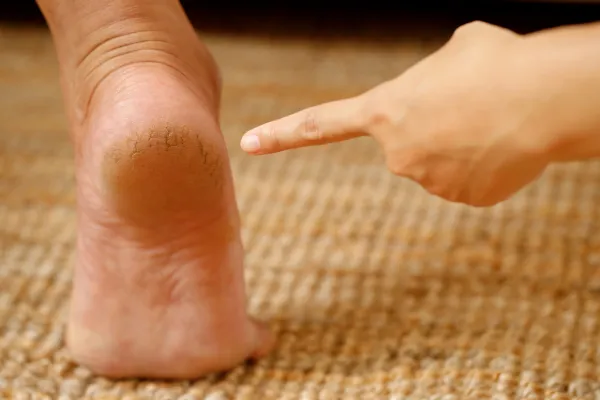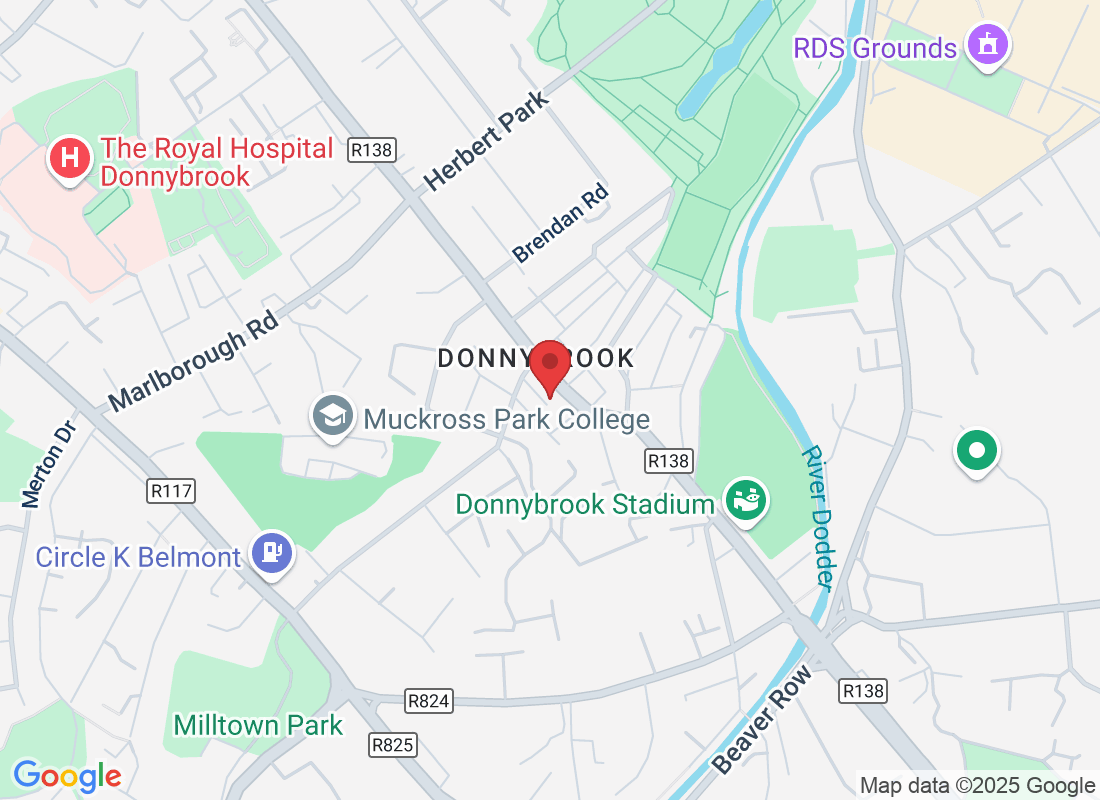Tips & Advice From Mary Moore Podiatry

Do You Need to See a Podiatrist for Cracked Heels?
Introduction:
Cracked heels might seem like a small problem — especially in winter, when most of us are wearing socks and boots. But for many people, dry, split heels aren’t just a cosmetic issue. They can be sore, bleed, or even become infected if left untreated.
If you’ve been slathering on foot cream without much luck, you might be wondering: is it time to get help from a podiatrist?
In this post, we’ll look at when cracked heels are something you can manage at home — and when it’s time to see a chiropodist in Dublin 9 for professional care.
What Causes Cracked Heels?
Cracked heels (also called heel fissures) happen when the skin on the bottom of your feet becomes dry, thick, and less elastic. Everyday pressure from walking or standing causes the skin to split, especially around the edges of the heel.
Common causes include:
Dry skin (often worse in winter or with age)
Prolonged standing, especially on hard floors
Open-back shoes or sandals
Going barefoot frequently
Obesity, which increases pressure on the heels
Skin conditions, such as eczema or psoriasis
Medical conditions like diabetes or thyroid disorders
When Are Cracked Heels More Than Just Dry Skin?
Mildly dry heels with a bit of flakiness are usually no big deal — a good moisturiser and some TLC can often help. But if you’re dealing with deep cracks, bleeding, or pain when walking, that’s your body’s way of telling you it needs more than a home pedicure.
Here are signs it’s time to see a chiropodist in Dublin 9:
🚩 The cracks are deep or painful
Fissures can split the skin deeply, making walking uncomfortable and increasing the risk of infection.
🚩 There’s bleeding or redness
Open skin is more vulnerable to bacteria. In people with diabetes or circulation issues, this can escalate quickly.
🚩 Creams and home care aren’t working
If you’ve tried moisturisers, pumice stones, and foot soaks with little improvement, it’s time for a professional opinion.
🚩 You have diabetes or other health concerns
Even small foot problems can become serious if you have reduced circulation or nerve sensitivity.
What Can a Podiatrist or Chiropodist Do?
At Mary Moore Podiatry, our approach to cracked heels goes beyond surface-level treatment. A chiropodist in Dublin 9 can:
Remove hard, dead skin safely using sterile instruments
Apply medical-grade moisturisers or dressings to encourage healing
Check for signs of infection, particularly in deep or open cracks
Advise on proper footwear and daily routines to prevent recurrence
Create a personalised foot care plan, especially if other conditions are involved
We also look for underlying causes — because sometimes cracked heels are a symptom of something more, like fungal infections, pressure imbalances, or structural foot issues.
How to Prevent Cracked Heels at Home
Once your feet are back on track, prevention is key. Here are some tips we often share with our patients:
Moisturise daily, ideally with a urea-based foot cream
Avoid walking barefoot on hard floors for long periods
Wear cushioned, closed-back shoes to support the heel
Use a pumice stone gently, but never overdo it
Stay hydrated, especially in colder months
Don’t Wait Until It Hurts
Cracked heels might start out as a minor irritation, but they can quickly turn into a painful — and sometimes serious — foot problem if ignored. The good news is, with expert care and simple daily habits, your heels can heal beautifully.
If you’re unsure whether it’s worth booking an appointment, remember: it’s never a waste of time to take care of your feet. And if you’re dealing with sore, stubborn heel cracks, a chiropodist in Dublin 9 is ready to help.
Conclusion:
Cracked heels are more than just dry skin — especially when they start to hurt or don’t heal with regular care. If you’ve tried everything and your feet are still uncomfortable, don’t wait. Visiting a chiropodist could be the step that finally brings lasting relief.
Ask Mary Moore Podiatry And Their Team
Fill in the form to request a call from our team. One of our team members will call you for FREE and answer any questions or concerns you may have about your condition
Our Clinic Locations
Glasnevin Clinic

If you have any questions before scheduling an appointment or for general inquiries, please use the contact us button below. Our team will promptly reach out to assist you.
Opening Hours
Monday: 8:30am - 7pm
Tuesday: 8:30am - 5pm
Wednesday: 8:30am - 6pm
Thursday: 8:30am - 7pm
Friday: 8:30am - 5pm
Saturday: Closed
Sunday: Closed
Donnybrook Foot Mechanics

If you have any questions before scheduling an appointment or for general inquiries, please use the contact us button below. Our team will promptly reach out to assist you.
Opening Hours
Monday: Closed
Tuesday: 9:30am - 5pm
Wednesday: 9:30am - 5pm
Thursday: Closed
Friday: Closed
Saturday: Closed
Sunday: Closed


